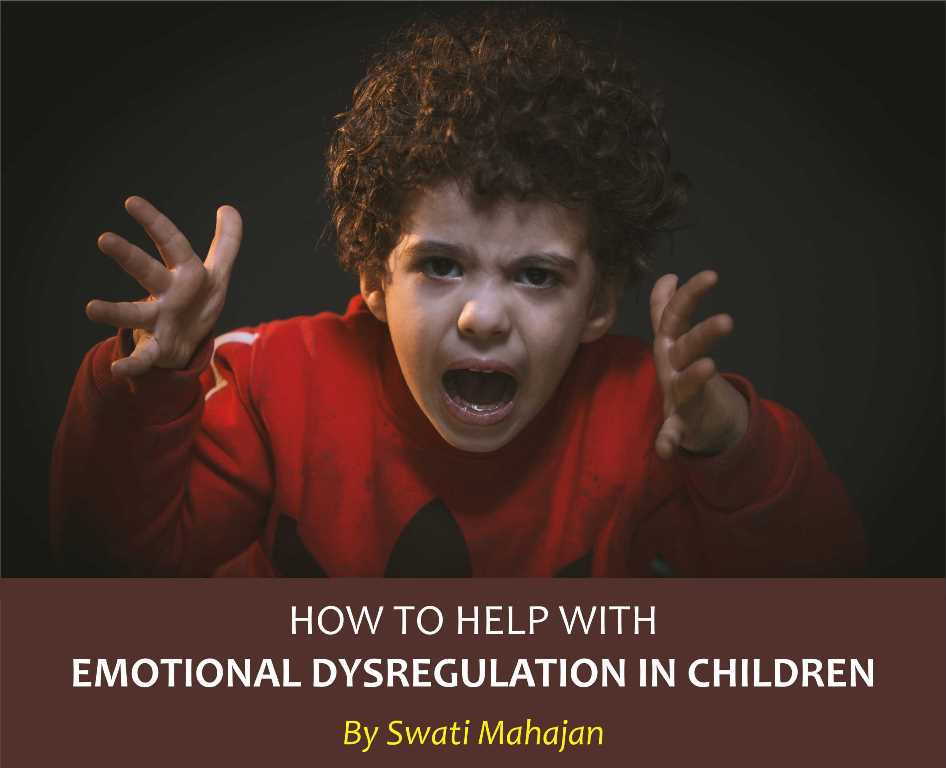HOW TO HELP WITH EMOTIONAL DYSREGULATION IN CHILDREN
If you’re a parent, chances are you’ve witnessed a tantrum or two in your day. We expect them in two-year-old, but if your child reaches school age and meltdowns and outbursts are still frequent, it may be a sign that they have difficulty with emotional self-regulation. And many older children, even if they’re beyond tantrums, they continue to struggle with impulsive and inappropriate behavior.
What is Self-regulation?
Self-regulation is the ability to manage your emotions and behavior in accordance with the demands of the situation.
Problems with self-regulation manifest in different ways in different children. Some kids have a huge, strong reaction and there is no build-up. They can’t control that immediate behavior response. For other kids, distress seems to build up and they can only take it for so long. Eventually it leads to some sort of behavioral problems.
Why do some kids struggle with Self-regulation?
When parents give in to tantrums or work overtime to soothe their children when they get upset and act out, kids have a hard time developing self-regulation. In those situations, parents become their external self-regulators. If this pattern happens again & again, and a child is able to ‘outsource’ self-regulation, then that might develop as a habit.
How do we teach Self-regulation skills?
See acting out is essentially an ineffective response to a stimulus. We need to help the child slow down and more carefully choose an effective response instead of being impulsive. If we approach self-regulation skills in the same way we approach other skills and provide practice, rather than pointing bad behavior it changes the tone and content of the feedback we give it to our children. Rather than giving up, try paring down the activity so it is more doable, and slowly give your child more and more independence to handle it.
Pro-tip: Expecting perfection from ourselves may actually increase tension and negativity.
we should keep working on our own emotional muscles, accept ourself & our family for where we are in the process. It’s never too late to start!
Regards
Swati Mahajan
Parenting Coach













Parents help your child, don’t fix for them.
Beautifully explained
Very nicely written article ?
Nice article.?
What a write up, we should not expect too much perfection, we are setting too high expectations ourselves and then regretting later ??
If parents involve kids how do they self regulate l, it will help kids to copy the same. It’s a gradual process and we parents should have patience.
Very useful article Swati. Thanks for bringing in.
??
Nice 1
Very well articulated.. Self-regulation is a life skill and modeling them the skill also does wonders.
Very perfectly written.
NICE
Well said! Self regulation coupled with practise and patience is the key to maagaing toddler tantrums.
V Pertinent topic touched, well articulated?
Very informative and helpful …. Looking forward for more articles from you
Important points very well summarised. Self regulation and display of right kind of behaviour is the key. 👍🏻👏🏻
An insightful article! Patience and love are the key ingredients of parenting.
Worth reading👍